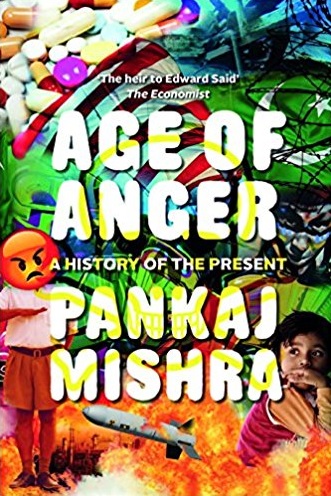Matt Morgan and Peter Brindley encourage us to take a deep breath
Anger rarely solves anything, it builds virtually nothing, and can destroy almost everything. With the risk of being trite, anger is also one letter short of danger. The film “Love Actually” starts by claiming that “love is all around.” In contrast, author Pankai Mishra makes a compelling argument that we are now living in an “age of anger” and experiencing “a pandemic of rage.” [1] Recent clinical weeks have suggested to us that many of our hospitals are no different. In case you think we are pointing fingers, we assure you that we are, and at every darn one of us: patients, families, administrators, clinicians, and most assuredly, these two authors. As intensivists, we prescribe the following: lets ALL take a deep breath.
 There are no simple explanations, nor simple solutions. Mishra talks about “ressentiment”. This is a complex French idea that translates as a psychological state arising from suppressed hatred and envy that cannot be acted upon. However, rather than focusing on pathophysiology, let’s talk about symptom control. Perhaps it starts by diagnosing communication as healthcare’s most dangerous “procedure” and understanding that “verbal dexterity” matters as much as manual dexterity. Then counsel yourself that words, once said, might be forgiven, but are rarely forgotten. Then self-administer regular boluses of self-reflection: perhaps we enjoy self-righteous anger a little too much; perhaps we find comfort by playing the victim. Perhaps the games people play help bring meaning; hopefully they do not prevent clarity.
There are no simple explanations, nor simple solutions. Mishra talks about “ressentiment”. This is a complex French idea that translates as a psychological state arising from suppressed hatred and envy that cannot be acted upon. However, rather than focusing on pathophysiology, let’s talk about symptom control. Perhaps it starts by diagnosing communication as healthcare’s most dangerous “procedure” and understanding that “verbal dexterity” matters as much as manual dexterity. Then counsel yourself that words, once said, might be forgiven, but are rarely forgotten. Then self-administer regular boluses of self-reflection: perhaps we enjoy self-righteous anger a little too much; perhaps we find comfort by playing the victim. Perhaps the games people play help bring meaning; hopefully they do not prevent clarity.
We were taught that hurt people hurt people. Less time was spent teaching us that this need not be inevitable. Despite living through the holocaust, the physician Victor Frankl was able to believe: “Between stimulus and response there is a space. In that space is our power to choose our response. In our response lies our growth and our freedom.” He was just as adroit when stating: “when no longer able to change a situation, we are challenged to change ourselves.” Unfortunately, though, this level of compassion can seem unattainable if you feel immersed in daily anger; in the same way that it is impossible to swim without getting wet. Regardless, a wise mentor taught us that there are only three emotions that matter: fear, greed, and fear (sic). As such, let’s start by sharing what we are scared of. Perhaps for doctors it’s the loss of autonomy. Perhaps for patients it’s loss of certainty as much as loss of health. Let’s find time for a cup of tea and some bilateral empathy.
Violence is still a disproportionately male response, but blame and anger are common regardless of gender or demographic. Humans are built such that the “adrenal” can easily dominate the “cerebral.” The result is that “anger“ hogs our bandwidth, and leaves less room for “acceptance” and “compromise” and “compassion.” Mishra’s book offers no easy excuses. Mishra also believes that reasonableness can only flourish when there is widespread optimism. He also believes that the current state is the culmination of replacing traditional beliefs with consumerism and disconnectedness. We want to (politely) disagree, but are finding it hard. We want to do better, and we know we must. For now, we will just take that deep breath.
Matt Morgan, Honorary Senior Research Fellow at Cardiff University, Consultant in Intensive Care Medicine and Head of Research and Development at University Hospital of Wales, and an editor of BMJ OnExamination. He is on twitter: @Matrix_Mania
Peter Brindley, Professor in the Department of Critical Care Medicine, Department of Anesthesiology and Pain Medicine, and the Dosseter Ethics Centre, University of Alberta, Edmonton, Canada. He is on twitter: @docpgb
References:
- Pankaj Mishra. The Age of Anger. 2017. Farrar, Straus, and Giroux publishing. New York
